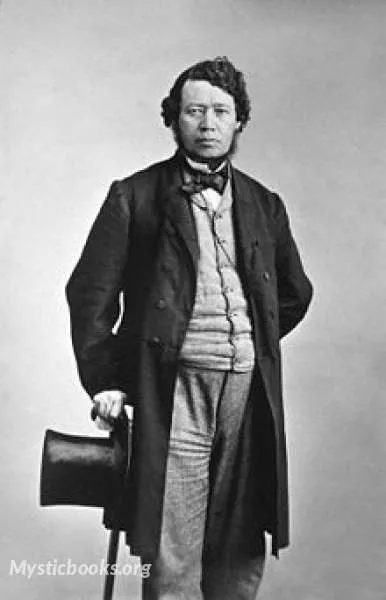
Timeline
Title
Country/Nationality
Thomas D'Arcy McGee
Thomas D'Arcy Etienne Grace Hughes McGee was an Irish-Canadian politician, Catholic spokesman, journalist, poet, and a Father of Canadian Confederation. The young McGee was a Irish Catholic who opposed British rule in Ireland, and worked for a peasant revolution to overthrow British rule and create an independent Irish Republic. He escaped arrest and fled to the United States in 1848, where he reversed his political beliefs. He became disgusted with American republicanism, Anti-Catholicism, and Classical Liberalism. McGee became intensely conservative in his political beliefs and in his religious support for the embattled Pope Pius IX. He moved to the Province of Canada in 1857 and worked hard to convince the Irish Catholics to cooperate with the Protestant British (members of the church) in forming a Confederation that would make for a self-governing Canada within the British Empire. His passion for Confederation garnered him the title: 'Canada's first nationalist'. McGee denounced the Fenian Brotherhood in both Canada and the United States, which was a secret society of exiled Irish Republicans, who resembled his younger self politically. McGee succeeded in helping create the Canadian Confederation in 1867, but was assassinated, allegedly by Patrick J. Whelan, in 1868.
Widely known as D'Arcy McGee, he was born on 13 April 1825 in Carlingford, Ireland, and raised as a Roman Catholic. From his mother, the daughter of a Dublin bookseller he learned the history of Ireland, which later influenced his writing and political activity. When he was eight years old, his family moved to Wexford, where his father, James McGee, was employed by the coast guard. In Wexford he attended a local hedge school, where the teacher, Michael Donnelly, fed his hunger for knowledge and where he learned of the long history of British rule and Irish opposition, including the more recent uprising of 1798. In 1842 at age 17, McGee left Ireland with his sister due to a poor relationship with their stepmother, Margaret Dea, who had married his father in 1840 after the death of his mother 22 August 1833. In 1842 he sailed from Wexford harbour aboard the brig Leo, bound for the United States. On the Leo he wrote many of his early poems, mostly about Ireland. He soon found work as assistant editor of Patrick Donahoe's Boston Pilot, a Catholic newspaper in Boston, Massachusetts. He specialized in articles expounding the movement for Irish self-determination led by Daniel O’Connell. He became the lead editor in 1844, While writing widely as well on Irish literature and politics. He advocated the union of Canada into the United States, saying, "Either by purchase, conquest, or stipulation, Canada must be yielded by Great Britain to this Republic."
In 1845, he returned to Ireland where he became politically active and edited The Nation, the voice of the Young Ireland movement. In 1847, he married Mary Theresa Caffrey; they had six children but only two daughters survived their father. His involvement in the Irish Confederation and Young Irelander Rebellion of 1848 resulted in a warrant for his arrest. McGee escaped disguised as a priest and returned to the United States.
In the United States, he achieved prominence in Irish American circles and founded and edited the New York Nation and the American Celt (Boston). He wrote a number of history books. He grew disillusioned with democracy, republicanism and the United States. Historian David Gerber traces a dramatic transformation from the Young Ireland revolutionary who sought a peasant insurrection to expel the British from Ireland. Gerber writes:
After 1851, however, he veered increasingly toward the opposite pole, espousing an ultramontane conservatism.... Catholic dogma and triumphalism, anti-Protestantism, cultural nationalism, and social conservatism were the framework of McGee's thought during the 1850s.
McGee emigrated to Montreal in 1857, believing Canada was far more hospitable to the Catholic Irish than was the United States. He downplayed the importance of the Orange Order in Canada. He remained a persistent critic of American institutions, and of the American way of life. He accused the Americans of hostile and expansionist motives toward Canada and of desiring to spread its republican ideas over all of North America. McGee worked energetically for continued Canadian devotion to the British Empire seeing in imperialism the protection Canada needed from all American ills.
In 1857, he set up the publication of the New Era in Montreal, Quebec. In his editorials and pamphlets he attacked the influence of the Orange Order and defended the Irish Catholic right to representation in the assembly. In terms of economics he promoted modernisation, calling for extensive economic development by means of railway construction, the fostering of immigration, and the application of a high protective tariff to encourage manufacturing. Politically active, he advocated a new nationality in Canada, to escape the sectarianism of Ireland. In 1858, he was elected to the Legislative Assembly of the Province of Canada and worked for the creation of an independent Canada. By 1861, McGee had earned a law degree at McGill University.
McGee became the minister of agriculture, immigration, and statistics in the Conservative government which was formed in 1863. He retained that office in the "Great Coalition", and was a Canadian delegate to the Charlottetown and Quebec conferences of 1864. At Quebec, McGee introduced the resolution which called for a guarantee of the educational rights of religious minorities in the two Canadas.
On 7 April 1868, McGee participated in a parliamentary debate that went on past midnight. After finishing, he walked back to the boarding house where he was staying. McGee was opening the door to Mrs. Trotter's Boarding House in Ottawa when he was shot in the head by someone waiting for him on the inside. Several people came running to the scene; however, there was no sign of the assassin. It was later determined that McGee was assassinated with a shot from a handgun by Patrick J. Whelan. McGee was given a state funeral in Ottawa known to be the one of the largest funerals in Canadian history and interred in a crypt at the Cimetière Notre-Dame-des-Neiges in Montreal. His funeral procession in Montreal drew an estimated crowd of 80,000 (out of a total city population of 105,000).
Books by Thomas D'Arcy McGee
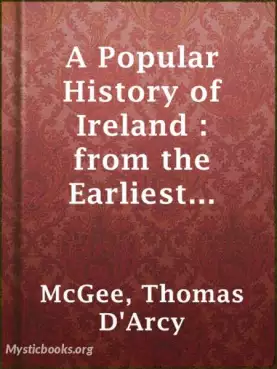
A Popular History of Ireland
Thomas D'Arcy McGee was an Irish refugee and a father of the Canadian confederation. His work on Irish history is comprehensive, encompassing twelve books; Book 1 begins with the earliest modern settlement of Ireland and ends with the 8th century.
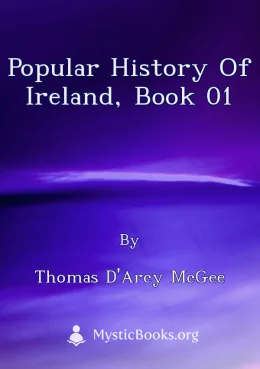
Popular History of Ireland, Book 01
Thomas D'Arcy McGee was an Irish refugee and a father of the Canadian confederation. His work on Irish history is comprehensive, encompassing twelve books; Book 1 begins with the earliest modern settlement of Ireland and ends with the 8th century. (S...
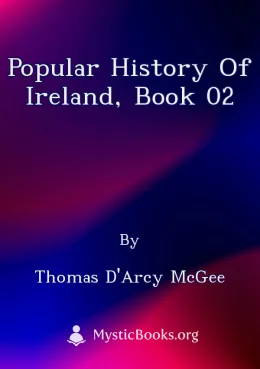
Popular History of Ireland, Book 02
Thomas D'Arcy McGee was an Irish refugee and a father of the Canadian confederation. His work on Irish history is comprehensive, encompassing twelve books; Book 2 begins with the Norse or Danish invasion of the island and continues through the end of...
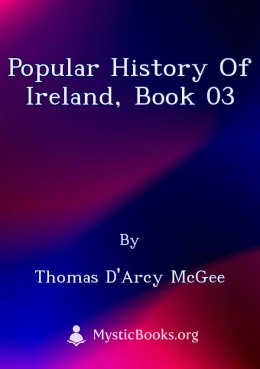
Popular History of Ireland, Book 03
Thomas D'Arcy McGee was an Irish refugee and a father of the Canadian confederation. His work on Irish history is comprehensive, encompassing twelve books; book 3 begins with the fortune of the family of Brian Boru and continues through the rise of t...
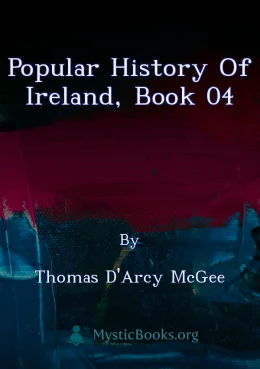
Popular History of Ireland, Book 04
Thomas D'Arcy McGee was an Irish refugee and a father of the Canadian confederation. His work on Irish history is comprehensive, encompassing twelve books; Book 4 begins with the first Norman invasion of the island and continues to the end of the 13t...
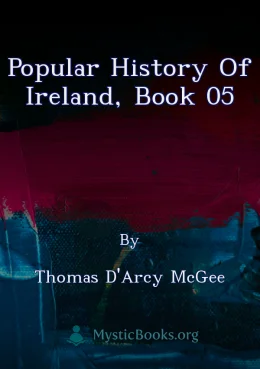
Popular History of Ireland, Book 05
Thomas D'Arcy McGee was an Irish refugee and a father of the Canadian confederation. His work on Irish history is comprehensive, encompassing twelve books; Book 5 begins with the rise of the “Red Earl” and addresses the relations between Scotland and...
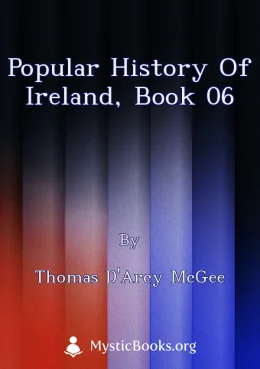
Popular History of Ireland, Book 06
Thomas D'Arcy McGee was an Irish refugee and a father of the Canadian confederation. His work on Irish history is comprehensive, encompassing twelve books; Book 6 subtitled the Native, the Naturalized, and “The English Interest”, covers the 14th and...
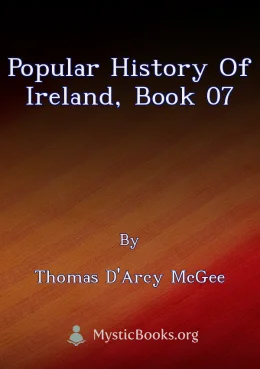
Popular History of Ireland, Book 07
Thomas D'Arcy McGee was an Irish refugee and a father of the Canadian confederation. His work on Irish history is comprehensive, encompassing twelve books; Book 7 subtitled “Unionized Crowns of England and Ireland”, addresses the Tudor period, partic...
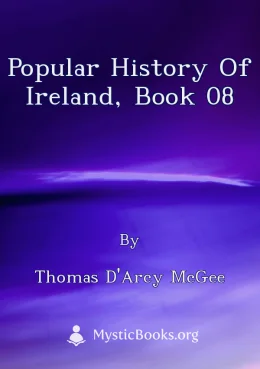
Popular History of Ireland, Book 08
This book is the eighth in a series of twelve books on the history of Ireland by Thomas D'Arcy McGee. It covers the late Tudor period, particularly the reigns of the children of Henry VIII, and ends with the end of the reign of Elizabeth I. The book...

Popular History of Ireland, Book 09
This book is the ninth volume in Thomas D'Arcy McGee's comprehensive history of Ireland, consisting of twelve books in total. It covers the early Stuart period, a time of great political and religious upheaval in Ireland. McGee, an Irish refugee and...
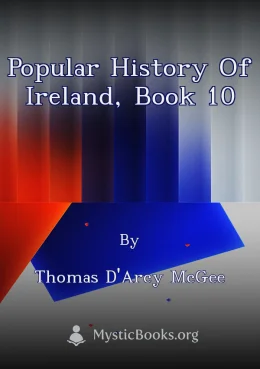
Popular History of Ireland, Book 10
This book provides a comprehensive overview of the history of Ireland from the Restoration of Charles II to the Accession of George I, a period marked by significant political and religious upheaval. McGee examines the impact of the restoration on Ir...
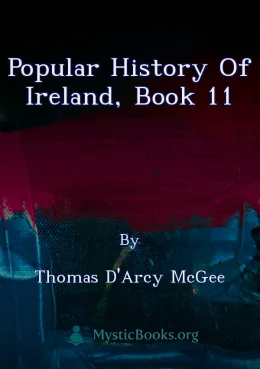
Popular History of Ireland, Book 11
Thomas D'Arcy McGee's 'Popular History of Ireland, Book 11' delves into the turbulent 18th century in Ireland, focusing on the reigns of the Hanoverian monarchs George I, George II, and George III. The book explores the escalating tensions between th...
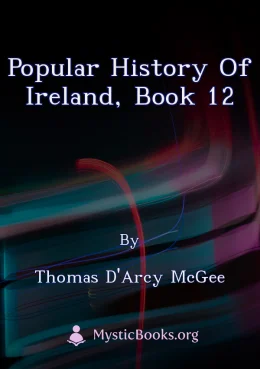
Popular History of Ireland, Book 12
This book explores the period in Irish history from the Act of Union in 1801, which formally united Great Britain and Ireland, to the Catholic Emancipation Act of 1829, which granted religious freedom to Irish Catholics. McGee's work delves into the...